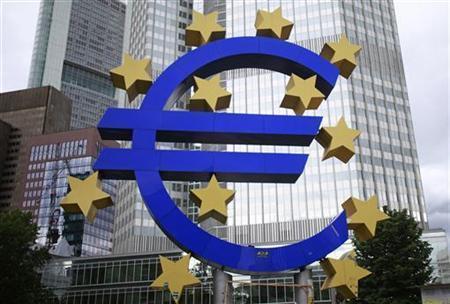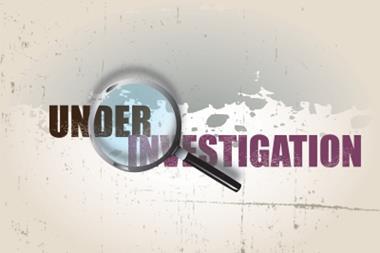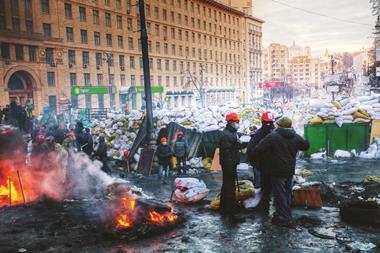As a tax-ridden, red tape-bound Europe sinks into further economic gloom, small and medium businesses must wait for reform

The continuing civil war in Ukraine hangs over Europe like a dark cloud as the region’s businesses struggle through a painful period of stagnation. Already, the conflict is affecting the profits of companies in Germany – Russia’s biggest trading partner in the EU – while economic sanctions against Russian president Vladimir Putin’s empire-building ambitions are affecting businesses in all sectors across Europe.
Exports out of Germany – the supposed engine of the European economy – are suffering significantly. The main business trade body, the Deutscher Industrie-und Handelskammertag (DIHK), has already lowered its growth forecasts for exports for the full year to 3.5% from 4.5% because of the Ukraine issue, equivalent to a fall of about €11bn in revenues.
“We are on a dangerous path,” summarised Volker Treir, the German head for foreign trade, in July. As a whole, the German economy actually shrunk by 0.2% in the second quarter of 2014.
Russia’s empire-building ambush of Ukraine – “an event that’s come from an entirely different epoch”, as Dr Florian Otto of risk analytics company Maplecroft told StrategicRISK – could hardly have come at a worse time.
According to the latest figures, the factories, retail and service industries over much of the EU are almost in a state of suspension. After growing by a paltry 0.2% in the first quarter of 2014, the combined economies registered zero growth in the second quarter.
Stagnation and collapse?
Few economists see a light at the end of this particular tunnel. Predicting “five more years of stagnation”, Alistair Winter, chief economist at the UK’s small company adviser Daniel Stewart and Co, forecasts a weakening euro as Asian banks slow down their wholesale buying of the currency. Indeed, he fears “there’s still a chance the euro will collapse” – an event that would have catastrophic consequences for all businesses.
The eurozone’s problems lie in the lacklustre performance of some of its biggest economies and most observers blame this on government policy. In stark contrast to a business-friendly Britain, most companies in mainland Europe are being taxed to the hilt and beyond.
“The UK is encouraging business investment and providing tax breaks,” Winter told StrategicRISK. “This is not happening in Europe. The money is flowing in the UK, but not in Europe.”
Other EU specialists are just as blunt in their verdict. “It’s no surprise the French and German economies are performing poorly”, says Philip Booth, programme director at the Institute of Economic Affairs. “As far as France is concerned, for some years, the country has been following policies that seem designed to discourage growth and employment – it is highly likely the current abysmal growth and employment trends are set to continue.”
Perhaps more worryingly, Booth fears a stagnating Germany too: “After important reforms at the beginning of the 21st century, Germany is also beginning to make some major policy errors, such as the introduction of a minimum wage. Germany also has long-term structural difficulties that will slow growth in the coming decades.”
For Booth, a former adviser on financial stability to the Bank of England, Germany no longer provides a model for other countries to follow – and especially not for the UK. “[Germany’s stagnation] should stop the fascination of our political class with German economic policy. Germany has not, in general, performed better than the UK, and is unlikely to do so in the near future.”
Dearth of credit
A major deterrent to European growth is a shortage of affordable business loans. Many smaller companies – especially family-owned ones with a deep aversion to debt – are nervous of borrowing from banks because of the increasingly stringent terms they write into contracts.
Also, as they have already shown, lenders are prepared to withdraw funds and pull the rug out abruptly from underneath their clients’ growth viability.
France
The dismal performance of France under president FranÇois Hollande looms as one of the biggest threats to the eurozone. Burdened by a bloated public sector and tax-ridden, the EU’s second-biggest economy has gone into retreat under the embattled socialist president who has, by general agreement, spent most of his nearly three years in power taking his country backward.
“There is a French elephant in the eurozone room that no one dares to speak about,” insists Danae Kyriakopoulou, economist at the UK’s Centre for Economic and Business Research (CEBR) in a report on the region in August. “Huge challenges lie ahead for France in terms of consolidating its public finances, improving damaged competitiveness, and reducing high structural unemployment [now more than 10% and rising].”
Unless France moves quickly, Kyriakopoulou follows Winter in predicting “dramatic consequences for the viability of the currency union” that could “push the eurozone to breaking point.”
Italy
Although Italy is not much better, it does at least have a reform-minded government under prime minister Matteo Renzi, who has been in power only since February. Renzi has to hurry, though, as Italy has seen an exodus of some of its biggest companies, which are being driven out by red tape, political inertia and corruption, with intransigent unions exploiting rigid labour laws.
For example, the endless battles that Fiat’s reforming chief executive Sergio Marchionne has fought with Italian automotive unions have led to most of the group’s assembly lines being based elsewhere. These days, the marque is Italian in name only.
Lately, some of Italy’s biggest companies have sold out to deeper-pocketed competitors. In mid-2013, for example, US giant General Electric acquired for $4.3bn (€3.3bn) one of the country’s flagship companies: the aerospace business of Avio SA.
Thousands of smaller Italian companies are running out of patience. “Italian SMEs are fed up,” points out Otto, citing an almost-dysfunctional commercial legal system, labour laws that almost oblige employers to hire staff for life and red tape so entangling that it can force companies to close. “It’s difficult for Italian businesses to plan,” he says.
In fact, this raises the question as to how they can plan at all. As the World Bank’s latest and insightful Ease of Doing Business survey shows, Italian companies face a constant and uphill battle with officialdom. It takes an average 230 days to obtain a construction permit and almost as long for an electrical one.
However, the situation becomes even more frustrating in breach of contract disputes. Astonishingly, it takes an average of 1,185 days for the courts to hear a case – more than twice the Organisation for Economic Co-operation and Development (OECD) average. Yet, when a decision is finally given, the appeal process comes into play. In the worst-case – but not infrequent – scenarios, it can take up to eight years before a contractual dispute is settled. “It’s impossible for many companies to survive for such a long time,” notes Otto.
Sinking bonds
The eurozone’s sinking fortunes are reflected in bond yields and in Germany, France and other core states, they have slumped to the lowest level in modern history. Indeed, they have not been so low for 500 years.
“Yields fell this low in Genoa in the 15th century, but there has been nothing like this in Europe in modern times,” explains professor Richard Werner of the UK’s Southampton University. Like Werner, others see this as a portent of deflation, the curse of businesses everywhere.
Glimmers of hope
Yet, there’s hope. Although it will not happen tomorrow, the globalisation process may finally be turning in Europe’s favour. The phenomenon has forced the closure of perhaps thousands of firms across the EU and the merger of many others because they could not compete with the low wages of rising economies.
However, the differentials in wage rates between old and new economies are narrowing, with the result that production in some sectors should soon swing back to Europe. Then factories can start to reinvest.
“Globalisation has been working against the West, but it will eventually turn in its favour,” predicts Winter. “Labour costs are equalising, which will help SMEs in Europe as well as in their domestic markets.”
Further, it would be a mistake to underestimate the resilience of the privately owned companies that underpin the economies of countries such as Germany, France and Italy. Long suspicious of banks, many have become used to financing themselves out of retained earnings. As economists point out, the result is a low-risk, deeply conservative culture of low indebtedness that allows these companies to float through the hard times.
A time to buy
Earlier this year, Abu Dhabi’s giant sovereign wealth fund, the Mubadala group, made a vote of faith in Italy by buying all but 2% of Piaggio Aero, the Genoa-based builder of the successful Avanti EVO twin turboprop. The investment has enabled the aerospace group “to define a clear strategy for years to come,” worldwide head of sales Giuliano Felten told StrategicRISK.
As an aside, this is a reflection on Italy’s long-term economic mismanagement that Mubadala, which is investing $260m into Piaggio Aero, boasts a credit rating two to three notches higher than the sovereign debt issued from Rome.
Action – at last
Nothing is wrong with many of the problem countries’ businesses, but the politicians got in their way. For example, as Otto points out, many of France’s flagship businesses are world-class: “The French labour force is highly productive, but they are also very expensive,” he says.
Even Hollande, under relentless pressure from the OECD and the International Monetary Fund – both long-term critics of France – has just introduced the Responsibility Pact, which essentially phases in tax cuts for business and trims public spending.
In Italy, Renzi has bulldozed through a softening of labour laws that allows some part-time employment while attempting to implement the constitutional changes that would rid Italy once and for all of a fragmented political system in which much-needed reforms have been stalemated.
However, even if the necessary constitutional upheaval – the stepping stone to reform – takes place, it is unlikely the government will be able to introduce the long-awaited spring clean of the economy until 2016.
Back from the dead zone – to save the eurozone?
Meanwhile, ironically, the former disaster economies of the financial crisis are making a comeback. The Greek economy shrunk by only 0.2% in the second quarter, which was much less than expected. Spain’s and Portugal’s labour reforms are proving so effective that these former mañana economies are even taking some big business from France.
It would be a surprise indeed if these rescued nations ended up saving the eurozone.




















No comments yet